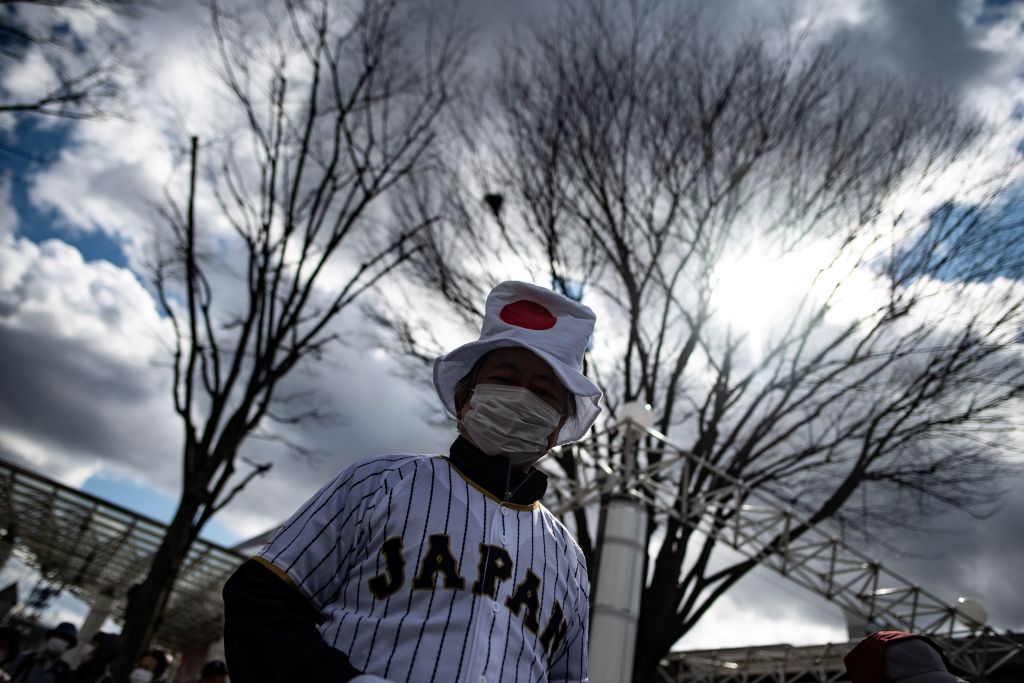I got back to Tokyo on Friday morning having hastily rescheduled my flight from Britain to avoid new restrictions for entering Japan. When I landed, it was all quite normal: I wasn’t pounced on by men in hazmat suits at Haneda airport and forced into isolation. I wasn’t interrogated on my recent whereabouts, or even given extra forms to fill out. And it turns out that even if I had flown a few days as planned, all that the new restrictions amounted to was a ‘request’ (issued with extreme politeness no doubt) to self-isolate in your own apartment.
Yet despite this relatively laid-back approach, Japan must be one of the best places in the developed world to be at the moment, as the impact of the coronavirus appears extraordinarily mild. What’s more, government intervention in everyday life has been minimal, to the point of imperceptibility. There have currently been 900 reported cases and around 50 deaths in Japan, which in a country of 126 million, close to China, and with densely-packed cities and a high proportion of elderly people is remarkable. Italy (population 60 million) has 40,000 cases and 3,600 dead.
After a brief flurry of postponements and cancellations, life seems to be going on pretty much as usual. Schools were initially closed but are reported to be reopening soon; and shops, bars, restaurant and even nightclubs are trading as normal. Many theatrical performances have been canceled, but not all, and people still turned out in huge numbers for the annual cherry blossom viewing last weekend, with the only government advice being to maintain a safe distance from others, and keep moving.
There have been some issues but the ever-resourceful Japanese are finding characteristically ingenious ways to overcome problems. To cope with increased demands for face masks a bra factory has repurposed its products to boost supply. And a pizza delivery company is offering ‘zero contact pizzas’, which does not mean having your Margarita tossed at you Frisbee style, or sliding it under the door, but the delivery man ‘setting it down in a designated location’ and ‘stepping back two yards’, as if from a lit firework.
Why Japan has yet to see a significant increase in cases has been the subject of much debate and there are various theories. One is that the official figures are simply wrong and there are far more cases than is being reported, perhaps due to the fact that the level of testing in Japan is too low. The more conspiratorial minded are suggesting that the government, which was desperate to hang on to the Olympic 2020 dream until the last possible moment (the 2020 games has now been shelved), are deliberately underreporting the real situation.
A more plausible explanation is that the action already taken by the Japanese government (early cancellations, targeted testing and containment by focusing on outbreak clusters) has been effective. The Japanese got early warning of the disease and learned lessons from the poorly received handling of the Diamond Princess outbreak. Hand sanitizers were made widely available, and people urged to make small modifications to their behavior, which could have been crucial in containing the virus in its more controllable phase.
Then there are certain advantages in terms of lifestyle habits that may be helping to keep the virus at bay. Much of the actions being recommended, or enforced in Europe are already established in Japanese culture. Chief amongst these is the almost total absence of physical contact between strangers (contrast with Italy). Shaking hands with, or – God forbid – kissing on greeting someone is about as serious a faux pas as a visitor to Japan can make. A hygiene regimen that elevates daily bathing and hand washing to the status of holy ritual is another likely contributory factor. And, demographic trends have resulted in huge numbers of older people already living in virtual isolation, in vast complexes of tiny one-or two-room apartments, living lonely, but at the moment at least, somewhat safer lives.
However, some believe the apparent lull is an illusion, or more luck than good strategy, and for Japan the worst is yet to come. Professor Kenji Shibuya of King’s College London Institute of population health, quoted in the Japan Times, believes an explosion in the number of cases could still occur, and more draconian measures could yet be introduced if that happens. No one is taking anything for granted.
Still, for now, I’m feeling pretty good about being in Tokyo rather than London.
This article was originally published on The Spectator’s UK website.


















